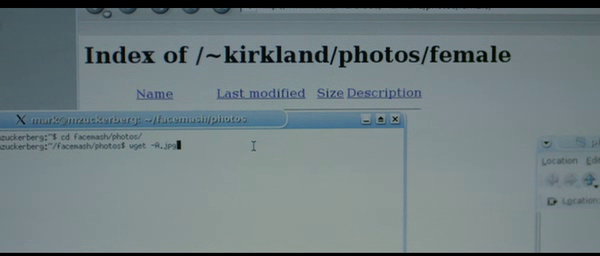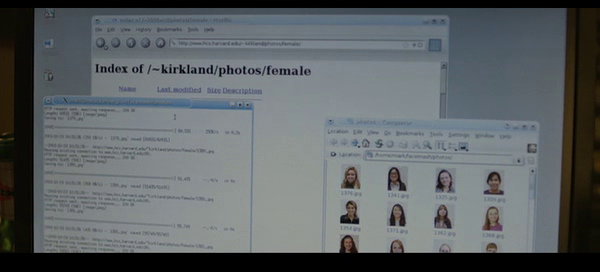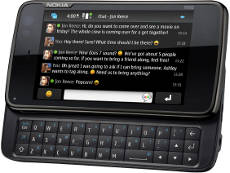Ok, The Social Network isn’t a new movie by any means at this time, but I happened to see it the other day. I’ll leave the entire story and whatever facts or not it did or didn’t portrait in a correct manner.
But I did spot the use of several at least basic technical terms used in the beginning that struck me as amazingly correctly used! The movie character Mark actually used wget to download images (at about 10:05 into the movie), and as you can see on my first screenshot the initial keystrokes we get to see on the command line also actually resembles a correct wget command line. You can click on these images to get a slightly larger version of the pics. I’m sorry I couldn’t get any higher quality ones, but I figure the point is still the same!

After having invoked wget, as is explained he gets many pictures downloaded and what do you know, the screen output actually looks like it could’ve been a wget that has downloaded a couple of files:

He also mentioned the terms ‘Apache’, ’emacs’ and ‘perl scripts’ in complete and correct sentences.
Where is the world heading?!
Update: Hrvoje Niksic, the founder of wget, helped out with some additional observations:
The options looked right to me, something like -r -A.jpg …
I was wondering about the historical accuracy of the progress bar, but it checks out. The movie takes place about a year and a half after the release of Wget 1.8, which added the feature. The department that takes care of these things did a good job. 🙂



 Thomas Jarosch has been quite busy and worked a lot on the
Thomas Jarosch has been quite busy and worked a lot on the 


